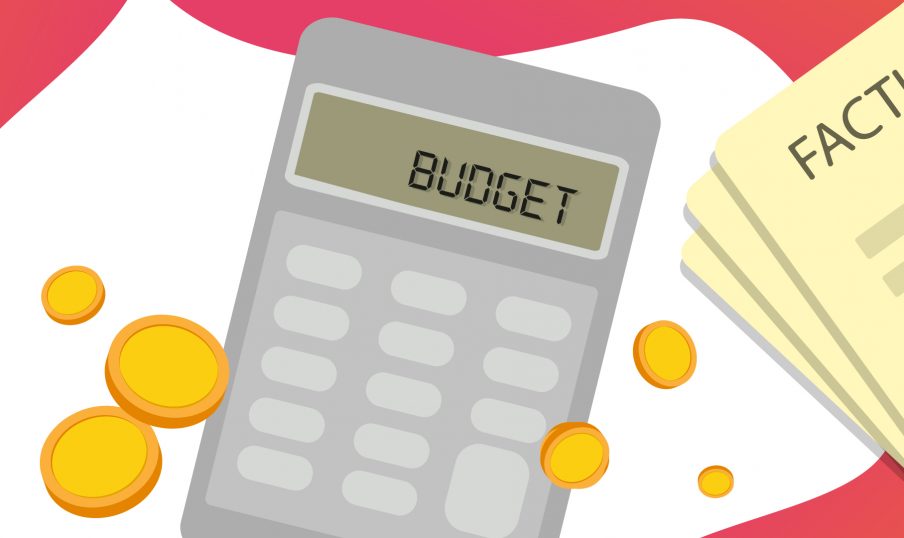
Would you like to get rid of the stress of financial uncertainty by learning to better manage your budget? Faced with the risk of overindebtedness, it is indeed important to know how to manage your budget correctly. A controlled management of your finances will help you avoid certain difficulties and you will be able to face your daily life more serenely.
Calculate your budget and define your “living expenses”
To manage your budget well, you need to keep a clear and precise vision of your expenses and income, which allows you to calculate your “remaining balance”. The “reste à vivre” defines the amount of money you have left after paying all your monthly expenses (rent, electricity, credit repayment, etc.).
To do this, calculate your income and expenses precisely. By deducting all of your current expenses from your total monthly income, you will obtain your remaining income.
Thanks to this calculation, you know how much money you have available for your hobbies, shopping, occasional purchases and savings, so you can balance your budget.
To organize your budget in the best possible way, it is recommended that you keep a chart of accounts that is regularly updated. It includes different sections related to your fixed and additional income, your current and exceptional expenses.
Managing your budget: how to allocate your monthly salary?
Mastering your budget involves knowing how to properly allocate your different sources of expenses. Need some tips on how to balance your budget and use your monthly income wisely? You can use this breakdown, also known as the “50-30-20 rule”, to help you better manage your budget:
- 50% of the budget is allocated to basic needs (food, rent, electricity, health, insurance, transportation…);
- 30% dedicated to pleasures and leisure (outings, gifts, vacations…);
- 20% for savings.
These proportions can be adjusted slightly depending on your needs and income, but be sure to keep this balance. In particular, the 20% of income saved is essential!
To manage your budget and avoid exceeding the limits set in advance, a rechargeableprepaid card is very interesting. This type of card with no account allows you to spend only the amount of money you have previously placed on it. Nothing could be simpler! It eliminates any risk of overdraft and overspending. Using a PCS prepaid card allows you to keep total control of your spending and not exceed the 30% limit.
How to manage your budget: define your objectives
Regular savings are a very important part of budget management. Not only does it allow you to deal with the unexpected without stress, but it also helps you move towards your goals. Because there is more to life than the day-to-day! Outside of your routine, you probably have projects that you want to achieve, whether they are long, medium or short term. Changing during your life, they may concern :
- The purchase of a house ;
- A trip;
- A personal accomplishment (training, association, business…) ;
- A wedding;
- Etc.
Defining your goals is therefore essential to managing your budget accordingly. By clearly visualizing your goals and the amount of money they represent, you will be able to define the ideal amount of money to put aside each month.
But then, how do you manage your budget according to your goals in a concrete way? Start by setting a deadline for the completion of your project! Then divide the total amount needed for this goal by the number of months you have before you reach it (according to the deadline you have set). From this result, calculate the amount you need to save each month for this specific project. Modify the deadline if necessary to adapt it to your savings possibilities. As the months go by, adjust the target and the monthly savings according to the evolution of your income.

Manage your budget by anticipating expenses
Are you wondering how to manage your money and avoid the unexpected? Anticipation is at the heart of budget management! You must anticipate as much as possible your monthly expenses, your important one-time purchases, but also possible sudden expenses.
No one is safe from a water leak, a broken washing machine or a car breakdown. Anticipating these unforeseen events as much as possible by saving every month will allow you to avoid a huge hole in your budget in case of emergency!
Vacations, expensive purchases and other important expenses must also be planned and smoothed out over several months, in order to keep a good balance in the budget and avoid having recourse to credits which can be a source of indebtedness.
You have already figured it out: managing your budget means calculating, saving and anticipating! By following these simple rules month after month, you will avoid difficulties and achieve financial serenity, an essential aspect of a happy and fulfilling life!


